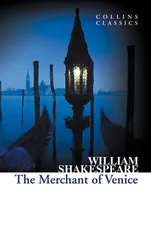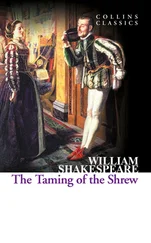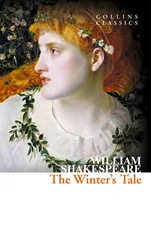William Shakespeare - The Sonnets
Здесь есть возможность читать онлайн «William Shakespeare - The Sonnets» — ознакомительный отрывок электронной книги совершенно бесплатно, а после прочтения отрывка купить полную версию. В некоторых случаях можно слушать аудио, скачать через торрент в формате fb2 и присутствует краткое содержание. Жанр: Классическая проза, на английском языке. Описание произведения, (предисловие) а так же отзывы посетителей доступны на портале библиотеки ЛибКат.
- Название:The Sonnets
- Автор:
- Жанр:
- Год:неизвестен
- ISBN:нет данных
- Рейтинг книги:4 / 5. Голосов: 1
-
Избранное:Добавить в избранное
- Отзывы:
-
Ваша оценка:
- 80
- 1
- 2
- 3
- 4
- 5
The Sonnets: краткое содержание, описание и аннотация
Предлагаем к чтению аннотацию, описание, краткое содержание или предисловие (зависит от того, что написал сам автор книги «The Sonnets»). Если вы не нашли необходимую информацию о книге — напишите в комментариях, мы постараемся отыскать её.
The Sonnets — читать онлайн ознакомительный отрывок
Ниже представлен текст книги, разбитый по страницам. Система сохранения места последней прочитанной страницы, позволяет с удобством читать онлайн бесплатно книгу «The Sonnets», без необходимости каждый раз заново искать на чём Вы остановились. Поставьте закладку, и сможете в любой момент перейти на страницу, на которой закончили чтение.
Интервал:
Закладка:
As high as learning, my rude ignorance.
Whilst I alone did call upon thy aid,
My verse alone had all thy gentle grace,
But now my gracious numbers are decayed,
And my sick muse doth give an other place.
I grant (sweet love) thy lovely argument
Deserves the travail of a worthier pen,
Yet what of thee thy poet doth invent,
He robs thee of, and pays it thee again,
He lends thee virtue, and he stole that word,
From thy behaviour, beauty doth he give
And found it in thy cheek: he can afford
No praise to thee, but what in thee doth live.
Then thank him not for that which he doth say,
Since what he owes thee, thou thy self dost pay.
O how I faint when I of you do write,
Knowing a better spirit doth use your name,
And in the praise thereof spends all his might,
To make me tongue-tied speaking of your fame.
But since your worth (wide as the ocean is)
The humble as the proudest sail doth bear,
My saucy bark (inferior far to his)
On your broad main doth wilfully appear.
Your shallowest help will hold me up afloat,
Whilst he upon your soundless deep doth ride,
Or (being wrecked) I am a worthless boat,
He of tall building, and of goodly pride.
Then if he thrive and I be cast away,
The worst was this, my love was my decay.
Or I shall live your epitaph to make,
Or you survive when I in earth am rotten,
From hence your memory death cannot take,
Although in me each part will be forgotten.
Your name from hence immortal life shall have,
Though I (once gone) to all the world must die,
The earth can yield me but a common grave,
When you entombed in men's eyes shall lie,
Your monument shall be my gentle verse,
Which eyes not yet created shall o'er-read,
And tongues to be, your being shall rehearse,
When all the breathers of this world are dead,
You still shall live (such virtue hath my pen)
Where breath most breathes, even in the mouths of men.
I grant thou wert not married to my muse,
And therefore mayst without attaint o'erlook
The dedicated words which writers use
Of their fair subject, blessing every book.
Thou art as fair in knowledge as in hue,
Finding thy worth a limit past my praise,
And therefore art enforced to seek anew,
Some fresher stamp of the time-bettering days.
And do so love, yet when they have devised,
What strained touches rhetoric can lend,
Thou truly fair, wert truly sympathized,
In true plain words, by thy true-telling friend.
And their gross painting might be better used,
Where cheeks need blood, in thee it is abused.
I never saw that you did painting need,
And therefore to your fair no painting set,
I found (or thought I found) you did exceed,
That barren tender of a poet's debt:
And therefore have I slept in your report,
That you your self being extant well might show,
How far a modern quill doth come too short,
Speaking of worth, what worth in you doth grow.
This silence for my sin you did impute,
Which shall be most my glory being dumb,
For I impair not beauty being mute,
When others would give life, and bring a tomb.
There lives more life in one of your fair eyes,
Than both your poets can in praise devise.
Who is it that says most, which can say more,
Than this rich praise, that you alone, are you?
In whose confine immured is the store,
Which should example where your equal grew.
Lean penury within that pen doth dwell,
That to his subject lends not some small glory,
But he that writes of you, if he can tell,
That you are you, so dignifies his story.
Let him but copy what in you is writ,
Not making worse what nature made so clear,
And such a counterpart shall fame his wit,
Making his style admired every where.
You to your beauteous blessings add a curse,
Being fond on praise, which makes your praises worse.
My tongue-tied muse in manners holds her still,
While comments of your praise richly compiled,
Reserve their character with golden quill,
And precious phrase by all the Muses filed.
I think good thoughts, whilst other write good words,
And like unlettered clerk still cry Amen,
To every hymn that able spirit affords,
In polished form of well refined pen.
Hearing you praised, I say 'tis so, 'tis true,
And to the most of praise add something more,
But that is in my thought, whose love to you
(Though words come hindmost) holds his rank before,
Then others, for the breath of words respect,
Me for my dumb thoughts, speaking in effect.
Was it the proud full sail of his great verse,
Bound for the prize of (all too precious) you,
That did my ripe thoughts in my brain inhearse,
Making their tomb the womb wherein they grew?
Was it his spirit, by spirits taught to write,
Above a mortal pitch, that struck me dead?
No, neither he, nor his compeers by night
Giving him aid, my verse astonished.
He nor that affable familiar ghost
Which nightly gulls him with intelligence,
As victors of my silence cannot boast,
I was not sick of any fear from thence.
But when your countenance filled up his line,
Then lacked I matter, that enfeebled mine.
Farewell! thou art too dear for my possessing,
And like enough thou know'st thy estimate,
The charter of thy worth gives thee releasing:
My bonds in thee are all determinate.
For how do I hold thee but by thy granting,
And for that riches where is my deserving?
The cause of this fair gift in me is wanting,
And so my patent back again is swerving.
Thy self thou gav'st, thy own worth then not knowing,
Or me to whom thou gav'st it, else mistaking,
So thy great gift upon misprision growing,
Comes home again, on better judgement making.
Thus have I had thee as a dream doth flatter,
In sleep a king, but waking no such matter.
When thou shalt be disposed to set me light,
And place my merit in the eye of scorn,
Upon thy side, against my self I'll fight,
And prove thee virtuous, though thou art forsworn:
With mine own weakness being best acquainted,
Upon thy part I can set down a story
Of faults concealed, wherein I am attainted:
That thou in losing me, shalt win much glory:
And I by this will be a gainer too,
For bending all my loving thoughts on thee,
The injuries that to my self I do,
Doing thee vantage, double-vantage me.
Such is my love, to thee I so belong,
That for thy right, my self will bear all wrong.
Say that thou didst forsake me for some fault,
And I will comment upon that offence,
Speak of my lameness, and I straight will halt:
Against thy reasons making no defence.
Thou canst not (love) disgrace me half so ill,
To set a form upon desired change,
As I'll my self disgrace, knowing thy will,
I will acquaintance strangle and look strange:
Be absent from thy walks and in my tongue,
Thy sweet beloved name no more shall dwell,
Lest I (too much profane) should do it wronk:
And haply of our old acquaintance tell.
For thee, against my self I'll vow debate,
For I must ne'er love him whom thou dost hate.
Then hate me when thou wilt, if ever, now,
Читать дальшеИнтервал:
Закладка:
Похожие книги на «The Sonnets»
Представляем Вашему вниманию похожие книги на «The Sonnets» списком для выбора. Мы отобрали схожую по названию и смыслу литературу в надежде предоставить читателям больше вариантов отыскать новые, интересные, ещё непрочитанные произведения.
Обсуждение, отзывы о книге «The Sonnets» и просто собственные мнения читателей. Оставьте ваши комментарии, напишите, что Вы думаете о произведении, его смысле или главных героях. Укажите что конкретно понравилось, а что нет, и почему Вы так считаете.











